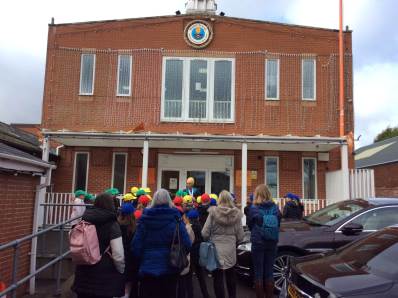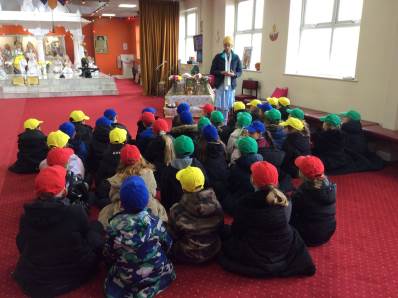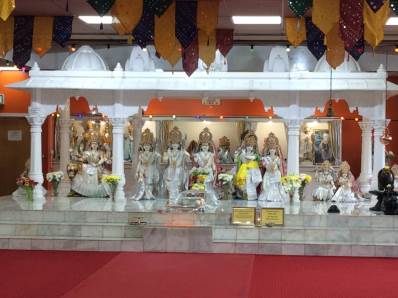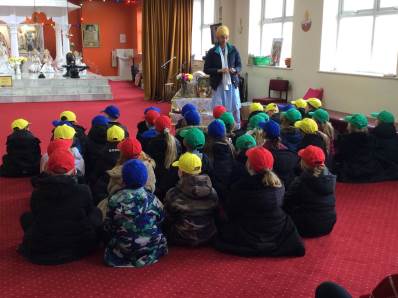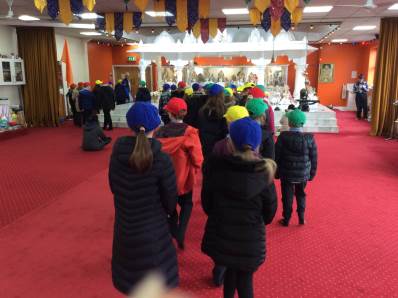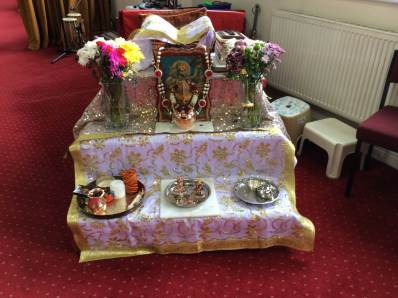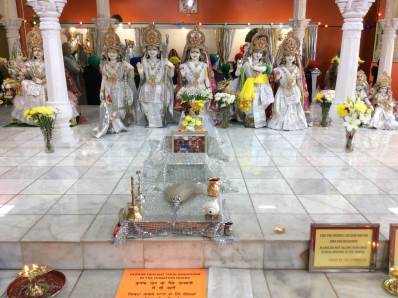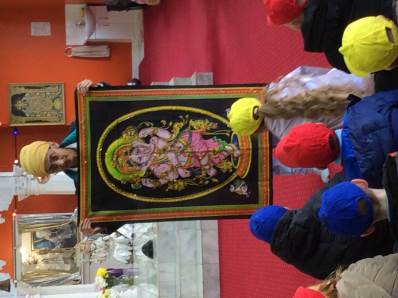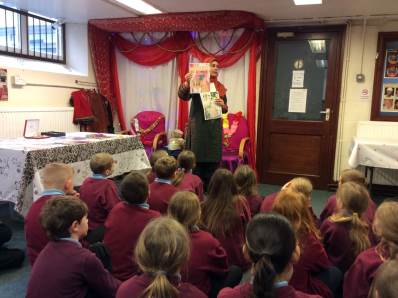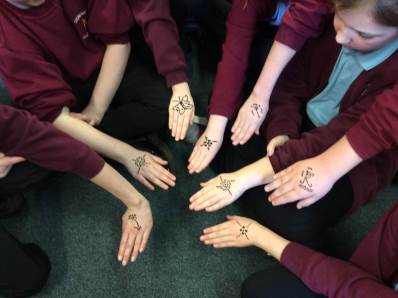Religious Education
"I truly believe the only way we can create global peace is through not only educating our minds, but our hearts and souls."
Malala Yousafzai
Our Religious Education Lead is Miss I Brice.
Religious Education Intent
At Dronfield Junior School we strive to promote the spiritual, moral and cultural development of our pupils and to prepare them for the opportunities, responsibilities and experiences of later life. The principal aim of Religious Education in our school is to ‘engage pupils in systematic enquiry into significant
human questions which religion and world views address, so that they can develop the understanding and skills needed to appreciate and appraise varied responses to these questions, as well as develop responses of their
own’, as defined by the Derbyshire and Derby City Agreed Syllabus for Religious Education 2020 – 2025, the statutory syllabus which we follow.
We aim to provide rich opportunities for pupils to learn about, and from, religious and non-religious beliefs and practices and to reflect on their own beliefs and values. So, in the light of their learning, they grow in respect for themselves and others, having an increased understanding and tolerance which contributes positively to the creation of a better, more harmonious world for all.
We are committed to promoting depth of knowledge to enable pupils to consider and articulate their developing understanding and opinions so as to promote their
personal development.
We aim to ensure that every pupil’s statutory entitlement to RE is met, irrespective of their faith or belief and, within this, we encourage pupils to explore questions of spirituality, identity, ethics, discrimination and prejudice.
Religious Education Implementation
Each year group focuses on four key questions taken from the ‘Derbyshire and Derby City Agreed Syllabus for Religious Education 2020 – 2025’ ensuring that at least one question is selected from each of the three strands – Believing, Expressing and Living.
The RE curriculum is lead by asking ‘big questions’ aimed to promote inquisitive
minds, respect, tolerance and a greater understanding of themselves and the diverse world in which we live. The RE key questions, where possible, align with the key questions which introduce year group Projects.
RE is taught as a separate subject and additional RE days or events across the academic year. Throughout the academic year, a variety of visits are undertaken and visitors are invited into school, including visiting Dronfield Parish Church and The Derby Open Centre and Mandir in Lower School, and visiting the Madina Mosque in Upper School.
Through RE we encourage pupils to extend their knowledge and understanding of living faiths and world views, recognising their local, national and global contexts. Learning is enabled through an extended range of sources and subject specific vocabulary.
Pupils are encouraged to be curious and to ask increasingly challenging questions about religion, belief, values and human life whilst developing a mutual respect and tolerance. We particularly focus on Christianity, Hinduism and Islam whilst also studying non-religious world views.
Learning in group work, with a partner or as individuals is inclusive and facilitated through a wide range of key strategies, including: open questioning, thinking skills, expressive arts, visits and visitors, practical approaches, studying artefacts and discussion. Discussions and lessons have a high expectation to show respect, respect of diversity and differing beliefs.
Prior learning is built upon ensuring progression. Pupils are teacher assessed at the end of each unit. A final written assessment is used at the end of the Key
Stage which relates to the End of Key Stage Outcomes as described in the ‘Derbyshire and Derby City Agreed Syllabus for Religious Education 2020 – 2025’.
Regular assemblies, which include religious festivals and events, and a weekly Celebration Assembly form part of our assembly calendar.
We are members of the RE teaching professional body NATRE (National Association of Teachers of Religious Education).
Religious Education Impact
Through studying religious and non-religious world views our pupils have an increasing knowledge and understanding of the diversity of the world in which we live. This plays a key role in fostering good relationships between different groups within the school and in later adult life.
RE provides a safe space to discuss, experience and respond well to difference. Pupils actively participate in lessons and can express their own views and learn to agree or disagree respectfully with each other.
Pupils apply their knowledge and understanding to their life experiences. The RE curriculum promotes inquisitive minds, respect, tolerance and understanding for all those around, them including themselves and others in our world.
Pupils recognise and appreciate the differences and similarities between different religious and non religious world views. Pupils are able to apply their knowledge and understanding to other areas of the curriculum such as geography,
history and PSHE / RSE.
Assessment against the RE curriculum enables teachers to consider and record attainment and progress. Shared monitoring of RE (including lesson observations, book-looks and the checking of planning) is carried out in a supportive atmosphere in order to develop and improve teaching and learning. We conduct pupil voice interviews and act on the outcomes.
Learning about Hinduism
Religious Education progression map
Derby and Derbyshire Religious Education Agreed Syllabus
Websites we use for supporting the planning and teaching of Religious Education:
https://www.bbc.co.uk/teach/ks2-religious-studies/z6pbqp3
https://www.bbc.co.uk/bitesize/subjects/z7hs34j
Hindu Temple
On Friday 15th March, the Year 4 children and staff travelled to Derby to have a tour of the Hindu temple where they learnt more about marriage customs. The children’s understanding of Hindu beliefs, cultures and traditions was deepened through this visit through imaginative workshops.
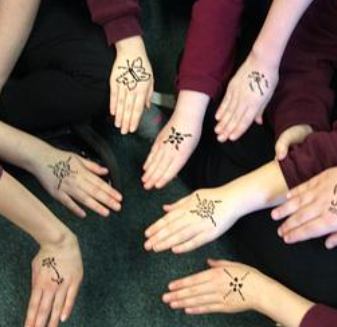
At DJS, we understand that in this ever-changing society, it is important for our children to understand the many communities that make up Britain today.

